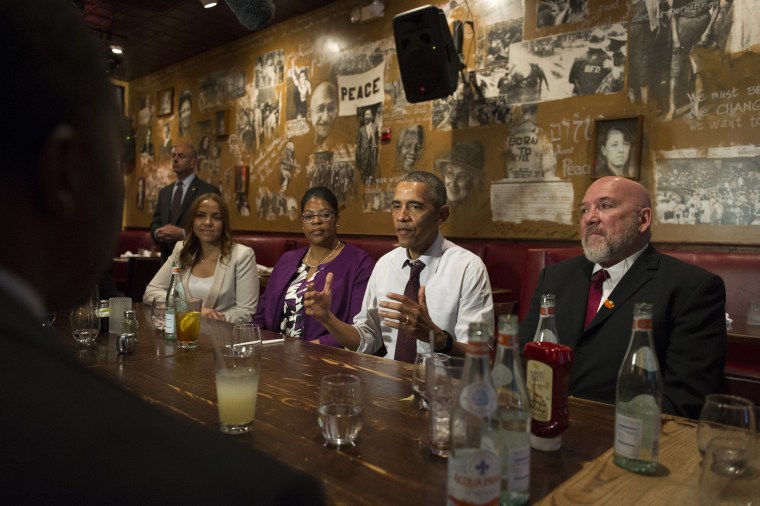President Obama capped an extraordinary week in clemency activity Thursday when he shortened the prison sentences of 330 drug offenders, the largest single batch of White House commutations in history.
The announcement, less than 24 hours before he leaves office, came two days after Obama handed out 209 commutations and 64 pardons, part of his unprecedented effort to show mercy to drug offenders serving epic prison terms. Obama has now commuted the sentences of 1,715 people, more than any of his predecessors.
Related: Some Big Names Got a Measure of Mercy From President Obama
"The President set out to reinvigorate clemency, and he has done just that," White House Chief Counsel Neil Eggleston said in a statement.

But, for advocates, there is a more somber side to Obama's initiative: the thousands of inmates whose petitions were denied, the thousands who are still waiting for a decision, and the relatively small number of pardon applications he approved. The future of his project remains in doubt under Donald Trump.
Related: The Flip Side to Obama’s Historic Clemency Push: A Stinginess with Pardons
The clemency push came late in Obama's presidency, as he granted just a few dozen in the first six years. Then, in 2014, after becoming more actively supportive of criminal justice reform, he put out a call for applications from nonviolent offenders who were sentenced to prison before the easing of notoriously harsh mandatory minimum laws in 2010.
That triggered a deluge of petitions. Obama solicited help from the nation's bar and from advocacy organizations, but the program struggled through a backlog. Lawyers in the Justice Department reportedly worked around the clock in recent months to get through the stack.
Related: Inmates Hope for Last-Ditch Shot at Obama’s Clemency Program
Obama's clemency grants came in large batches, hundreds at a time, accompanied by statements that framed his effort as a bid to become the most merciful president of all time.
But his denials were even more voluminous. The effect on applicants and their lawyers was like emotional whiplash.
On Wednesday, sandwiched between Obama's two ballyhooed clemency announcements, the Justice Department quietly released the names of more than 2,000 applicants who'd been denied.
James Felman, a Florida defense lawyer who represents dozens of inmates who applied for clemency, celebrated Tuesday when he learned that four had received commutations. On Wednesday, he learned that a dozen others had been denied, and he mourned. On Thursday, Felman was elated again, this time for four more clients who were on Obama's list.
A dozen of Felman's clients still have heard nothing. Three are serving life sentences.
And then there's the matter of reform. Advocates point out that clemency does nothing to change policies that led to mass incarceration. Efforts to ease those laws beyond the 2010 changes have stalled in Congress.
Felman, who won commutation for 44 total clients, called Obama's initiative "the single most gratifying professional experience I've ever undertaken."
He added: "I have so much gratitude for the president for having the courage and fortitude for doing this. But we know this is not a substitute for reforming the laws that got us here, and we still haven't accomplished that."
